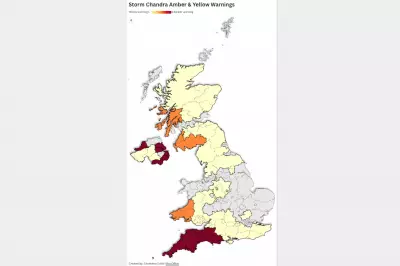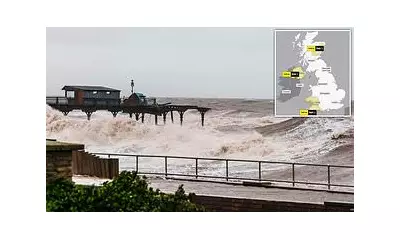
In a surprising turn of events, the quiet Highland village of Inchlaggan experienced an unusual natural phenomenon this week - a noticeable earthquake measuring 1.8 on the Richter scale.
The British Geological Survey (BGS) confirmed the seismic activity occurred at 11:49 AM on Wednesday, with the epicentre located just 7.5 miles northeast of Fort William. While earthquakes of this magnitude rarely cause damage, the event has sparked considerable discussion among locals and geologists alike.
'It Felt Like a Heavy Lorry Passing By'
Residents reported feeling a sudden, sharp jolt that lasted several seconds. "I was in my garden when I felt the ground shake beneath me," said Margaret Campbell, a lifelong Inchlaggan resident. "At first I thought it was just a heavy vehicle passing on the road, but then I realised nothing was there."
Why Scotland Experiences Earthquakes
While the UK isn't known for significant seismic activity, Scotland actually experiences between 200-300 earthquakes annually, though most are too weak to be felt. Dr. Brian Baptie, head of seismology at BGS, explained: "Scotland's earthquakes occur due to the release of stress within the Earth's crust, particularly along ancient fault lines."
The Inchlaggan quake was relatively shallow at just 3km below the surface, which made it more noticeable to residents despite its modest magnitude. Experts confirm this was the largest earthquake recorded in the area since 2016.
What This Means for Future Seismic Activity
Seismologists reassure that such events pose minimal risk, though they serve as a reminder that the UK isn't completely immune to earthquakes. "While we don't expect major seismic events in Britain," Dr. Baptie noted, "small earthquakes like this one help us better understand our geological landscape."
Local authorities confirmed no damage was reported, but the unexpected tremor has certainly given the close-knit Highland community something to talk about for weeks to come.





